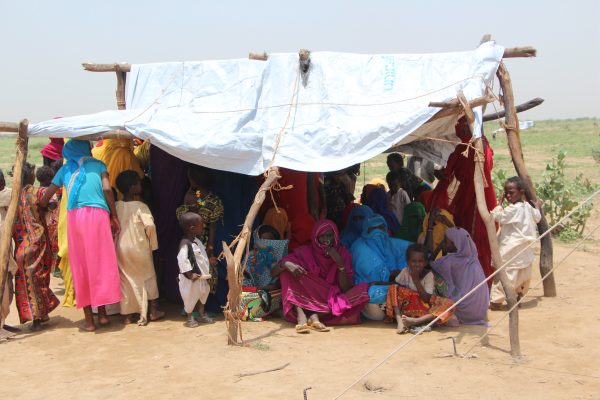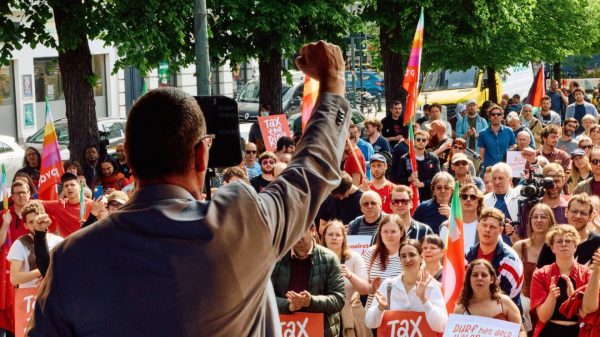Whistleblower David McBride sentenced, war criminals remain free

The jailing of Afghanistan war crimes whistleblower David McBride on May 14 has been condemned by truth-tellers across the globe.
McBride, a former Australian Defence Forces lawyer, served two tours in Afghanistan in 2011 and 2013, and complained internally about the behaviour of some Australian Special Air Service Regiment (SAS) members, but said he was not taken seriously.
Stella Assange, a friend, said on X that it is “scandalous” that McBride, who “shared documents evidencing impunity over ADF war crimes in Afghanistan” had been sentenced.
“The only person going to prison over the war crimes is the man who blew the whistle,” Assange said.
McBride’s leaked information was considered by the Australian Defence Force’s (ADF) Afghanistan (Brereton) Inquiry, established by the Coalition government to investigate allegations of war crimes committed by the elite SAS in Afghanistan — Australia’s longest war.
The four-year inquiry by Paul Brereton, a New South Wales Court of Appeal judge and senior officer in the Australian Army Reserve, published its report in 2020. It included evidence of 23 incidents in which one or more civilians — or people who had been captured or injured — were unlawfully killed by special forces soldiers, or at their direction.
The report found a further two incidents that it said could be classified as the war crime of “cruel treatment”.
It made 36 referrals to the Australian Federal Police, only one of which has gone to court.
Meanwhile, McBride was charged with five national security offences, denied immunity from prosecution and jailed for 5 years and 8 months, with no parole for 2 years and 3 months.
The only alleged war criminal to appear before court is SAS veteran Oliver Schulz, whose crime was first publicised by the ABC’s Four Corners program on March 16, 2020.
He shot Afghan man Dad Mohammad during an ADF raid in Uruzgan Province, southern Afghanistan, in May 2012.
The ABC’s video footage of the incident helped bring the severity of the war crimes allegations in Afghanistan to the public.
abc_four_corners_2020_on_afghanistan_killing_.png

Mohammad was married with two very young daughters. His family complained to the ADF, which investigated and cleared Shulz of wrong-doing. He completed multiple tours and was awarded the Commendation for Gallantry in Afghanistan.
Schulz has fared a lot better than McBride, whose evidence would have contributed to getting Shulz to face court.
Arrested in March last year, Shulz was granted relaxed bail conditions in February, since, according to the magistrate, the highly trained alleged war criminal presents no “heightened risk” and his lawyer argued he would be “at grave risk” of being attacked by “extremists” (in jail) opposed to the war in Afghanistan.
McBride has been charged with stealing public documents; not murder or war crimes.
McBride has always said he gave the ABC the documents as an act of public duty. He has spent five years waiting for sentencing, and now faces more than two years in jail.
Michael West has pointed out that McBride was not even allowed to argue his case in court, as the public interest defence was ruled out. He was therefore compelled to plead guilty.
“What kind of justice is it where McBride is denied the opportunity to put his case in an open court of law, being forced rather to plead guilty to government charges but with no resort to the most basic legal right of pleading his case?” West asked.![]()
“And what kind of justice is it that allows a whistleblower to be tried and convicted while the actual war crimes go unprosecuted, while dozens of incidents go entirely unpunished, untested in court?”
A Brutal Punishment: The Sentencing of David McBride
Sometimes, it’s best not to leave the issue of justice to the judges. They do what they must: consult the statutes, test the rivers of power, and hope that their ruling will not be subject to appeal. David McBride, the man who revealed that Australia’s special forces in Afghanistan had dimmed and muddied before exhaustion, committed atrocities and faced a compromised chain of command, was condemned on May 14 to a prison term of five years and eight months.
Without McBride’s feats, there would have been no Afghan Files published by the ABC. The Brereton Inquiry, established to investigate alleged war crimes, would most likely have never been launched. (That notable document subsequently identified 39 instances of alleged unlawful killings of Afghan civilians by members of the special forces.)
In an affidavit, McBride explained how he wished Australians to realise that “Afghan civilians were being murdered and that Australian military leaders were at the very least turning the other way and at worst tacitly approving this behaviour”. Furthermore “soldiers were being improperly prosecuted as a smokescreen to cover [the leadership’s] inaction and failure to hold reprehensible conduct to account.”
For taking and disclosing 235 documents from defence offices mainly located in the Australian Capital Territory (ACT), the former military lawyer was charged with five national security offences. He also found Australia’s whistleblowing laws feeble and fundamentally useless. The Public Interest Disclosure Act 2013 (Cth) provided no immunity from prosecution, a fact aided by grave warnings from the Australian government that vital evidence would be excluded from court deliberation on national security grounds.
Through the process, the Attorney-General, Mark Dreyfus, could have intervened under Section 71 of the Judiciary Act 1903 (Cth), vesting the top legal officer in the country with powers to drop prosecutions against individuals charged with “an indictable offence against the laws of the Commonwealth”. Dreyfus refused, arguing that such powers were only exercised in “very unusual and exceptional circumstances”.
At trial, chief counsel Trish McDonald SC, representing the government, made the astonishing claim that McBride had an absolute duty to obey orders flowing from the oath sworn to the sovereign. No public interest test could modify such a duty, a claim that would have surprised anyone familiar with the Nuremberg War Crimes trials held in the aftermath of the Second World War. “A soldier does not serve the sovereign by promising to do whatever the soldier thinks is in the public interest, even if contrary to the laws made by parliament.” To justify such a specious argument, authorities from the 19th century were consulted: “There is nothing so dangerous to the civil establishment of the state as an undisciplined or reactionary army.”
ACT Justice David Mossop tended to agree, declaring that, “There is no aspect of duty that allows the accused to act in the public interest contrary to a lawful order”. A valiant effort was subsequently made by McBride’s counsel, Steven Odgers SC, to test the matter in the ACT Court of Appeal. Chief Justice Lucy McCallum heard the following submission from Odgers: “His only real argument is that what he did was the right thing. There was an order: don’t disclose this stuff, but he bled, and did the right thing, to use his language, and the question is does the fact that he’s in breach of orders mean that he’s in breach of his duty, so that he’s got no defence?” The answer from the Chief Justice was curt: Mossop’s ruling was “not obviously wrong.”
With few options, a guilty plea was entered to three charges. Left at the mercy of Justice Mossop, the punitive sentence shocked many of McBride’s supporters. The judge thought McBride of “good character” but possessed by a mania “with the correctness of his own opinions”. He suffered from a “misguided self-belief” and “was unable to operate within the legal framework that his duty required him to do”.
The judge was cognisant of the Commonwealth’s concerns that disclosing such documents would damage Australia’s standing with “foreign partners”, making them less inclined to share information. He also rebuked McBride for copying the documents and storing them insecurely, leaving them vulnerable to access from foreign powers. For all that, none of the identifiable risks had eventuated, and the Australian Defence Force had “taken no steps” to investigate the matter.
This brutal flaying of McBride largely centres on clouding his personal reasons. In a long tradition of mistreating whistleblowers, questions are asked as to why he decided to reveal the documents to the press. Motivation has been muddled with effect and affect. The better question, asks Peter Greste, executive director of the Alliance for Journalists’ Freedom, is not examining the reasons for exposing such material but the revelations they disclose. That, he argues, is where the public interest lies. Unfortunately, in Australia, tests of public interest all too often morph into a weapon fashioned to fanatically defend government secrecy.
All that is left now is for McBride’s defence team to appeal on the crucial subject of duty, something so curiously rigid in Australian legal doctrine. “We think it’s an issue of national importance, indeed international importance, that a western nation has such as a narrow definition of duty,” argued his defence lawyer, Mark Davis.
John Kiriakou, formerly of the Central Intelligence Agency, was the only figure to be convicted, not of torture inflicted by his colleagues during the clownishly named War on Terror, but of exposing its practice. McBride is the only one to be convicted in the context of alleged Australian war crimes in Afghanistan, not for their commission, but for furnishing documentation exposing them, including the connivance of a sullied leadership. The world of whistleblowing abounds with its sick ironies.
Binoy Kampmark was a Commonwealth Scholar at Selwyn College, Cambridge. He lectures at RMIT University, Melbourne. Email: bkampmark@gmail.com. Read other articles by Binoy.



